Alexander J. Motyl's Blog, page 19
June 30, 2013
Searching for My Uncles' Soviet Killers
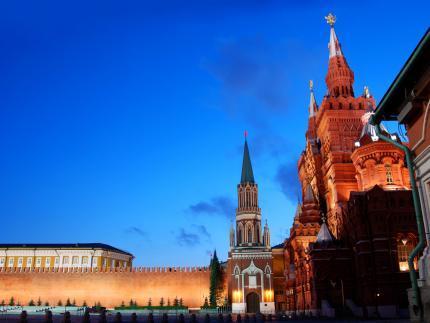
Two of my uncles were killed by the Soviets and I’d like to know who the perpetrators were. The first, my aunt’s husband, Bohdan, was killed exactly 72 years ago, on June 30, 1941, when the Soviet secret police shot somewhere between 9,000 and 20–25,000 (or possibly even more) mostly Ukrainian political prisoners in western Ukraine in the course of a week. The second, my father’s kid brother, Teodozii, was arrested sometime in 1947, sent to a prison camp in Siberia, and never returned.
Bohdan was a member of the nationalist underground. In the 1930s, he spent five to six years in Polish prisons, where he was systematically beaten and tortured. When Hitler and Stalin destroyed Poland in September 1939, he was freed. He married my aunt in 1940 and then, on June 22, 1941, the day Hitler turned on his former collaborationist pal Stalin, Bohdan was arrested and placed in a provincial jail. Just before the Soviets withdrew, they massacred the inmates. Bohdan was mutilated and shot. He and the other prisoners were then dumped into a pit behind the jail, only to be discovered after the Soviets withdrew. My mother was there when the bodies were exhumed. Some 20 corpses had been found and he wasn’t among them. Hoping that he might have survived, she took one last look into the pit and saw the outlines of another body. It was Bohdan. Evidently, he had been shot and dumped first.
Teodozii apparently had no political connections: he was an aspiring young actor who worked for a theater in Lviv. One weekend, he came home to his village at precisely the time that the nationalist underground had distributed some leaflets. Suspicion fell on him and he was arrested. In those days, it didn’t take much for the Soviet secret police to imprison you. They placed Teodozii in a Lviv jail for a few months and then shipped him out to Siberia. He never came back. Did he fall ill? Did he starve to death? Was he shot? No one knows.
Neither my father nor my aunt ever spoke about their personal tragedies. I vaguely knew of their losses and learned of the details much later in life, when I began researching the history of Ukraine. I can’t say that I have sleepless nights, but I am a tad angry. I’m angry at the Soviet Union, which killed two uncles. I’m angry at the Soviet secret policemen who tortured and shot Bohdan and maltreated Teodozii. And I’m angry at the reigning Western indifference to all Soviet deaths—and, by extension, to these two Ukrainian deaths.
I’d actually like to know who pulled the triggers and wielded the knives. I know there’s virtually no chance of finding out—the documentation probably doesn’t exist and, even if it does, it’s certainly under lock and key—but finding out isn’t the point, after all. Caring is, and the bottom line is that no one cares about the crimes committed by the KGB and its predecessor secret-police organizations. It was they who implemented the millions of deaths imposed by Stalin on the Soviet Union. It was they who incarcerated, tortured, and killed hundreds of thousands of their political opponents. It was they who deported entire peoples. Surely their crimes are at least roughly comparable to those of the SS and Gestapo. Or are victims of Soviet crimes less worthy of compassion than victims of Nazi crimes? And if we grant that all victims of violence deserve a smidgeon of our compassion, it surely follows that our outrage at the SS and Gestapo must extend to the KGB.
Except that it doesn’t. A bar in New York is named after the KGB and it features readings by liberal-minded avant-garde writers and poets. Former KGB officers write memoirs and give lectures in the United States and Canada. Their affiliation with a criminal organization appears not to matter. They aren’t even asked to say “oops” for their sins.
Consider the most egregious such example: Vladimir Putin, Russia’s president. Putin resolved to join the secret police in the 1970s, a few years after Soviet tanks crushed the Prague Spring in Czechoslovakia, and during one of the largest KGB crackdowns on Soviet dissent. This kind of past should raise eyebrows. Instead, policymakers, scholars, and journalists accept Putin’s choice as if it were merely a career move. They shake his hand at summits; they gladly let themselves be photographed in his presence; they attend elaborate meetings with him in Valdai. German Chancellor Gerhard Schröder went so far as to call Putin a “flawless democrat” at the height of Ukraine’s Orange Revolution in late 2004. French President Jacques Chirac even bestowed his country’s prestigious Grand-Croix de la Légion d’Honneur on Putin on September 23, 2006.
When I’m feeling bitter, I imagine how my uncles died. I see Bohdan getting a bullet in the back of his head. I see Teodozii starving in some barracks. And when I’m feeling cynical, I see Vladimir, Gerhard, and Jacques smoking cigars and drinking vodka in the KGB Bar.
OG Image: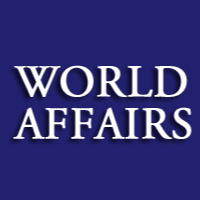
June 24, 2013
On Nationalism and Fascism, Part 3
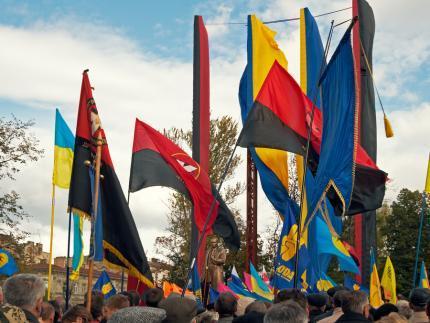
These reflections suggest that the most useful way of conceptualizing the interwar Organization of Ukrainian Nationalism (OUN) is as a nationalist movement with a nationalist ideology along the lines described above. In turn, this means that the OUN is most usefully compared to other nationalist movements that aspired to national liberation and the creation of nation-states (such as the American revolutionaries of 1776, the Palestine Liberation Organization, the Algerian National Liberation Front, the Irish Republican Army, the interwar Croatian Ustasha, the Vietnamese National Liberation Front, the Chinese Communist Party, and the Haganah in the British Mandate of Palestine, to name just a few) and not to fascist regimes or to fascist movements (such as Italian fascism, Nazism, the Polish Falanga, the Romanian Iron Guard, the Hungarian Arrow Cross, and the like). This is not to say that individual members of the OUN or individual planks of the OUN’s constantly changing ideology were not, or could not have been, fascist, but it is to say that to focus on these fragmentary fascist elements is, first, to mistake the part for the whole and therefore to misunderstand the OUN; second and much worse, to misunderstand both fascism and nationalism; and, third and worst of all, to engage in conceptual nonsense.
The Ukrainian nationalist movement’s relationship to political ideologies changed continually, proceeding from an apolitical militarism to authoritarianism to proto-fascism to democracy to social democracy. Thus, whereas nationalism as national liberation was a constant, the political ideology was a variable. The OUN’s predecessor in the 1920s, the Ukrainian Military Organization, was a collection of patriotically inclined ex-soldiers with little sense of political ideology. The OUN began as a radical youth movement, then morphed into a quasi-authoritarian movement, adopted fascist elements by the late 1930s and early 1940s, abandoned them by 1943–1944, and began acquiring progressively more democratic and social-democratic characteristics in the mid- to late-1940s and 1950s. The picture looks even more complex if we consider that the OUN, throughout the 1930s, was divided into the émigré and homeland factions, with the former being more concerned with ideology and the latter more with action. As we would expect, post–World War II émigré Ukrainian nationalists were divided into liberal, moderate, and authoritarian wings.
If you really want to understand what made such Ukrainian nationalists as Stepan Bandera and Roman Shukhevych tick—both were made Heroes of Ukraine by President Viktor Yushchenko and both were subsequently unmade as Heroes by President Viktor Yanukovych—don’t compare them to Adolf Hitler, Benito Mussolini, or Francisco Franco, but to George Washington, Jefferson Davis, Giuseppe Mazzini, Giuseppe Garibaldi, Menachem Begin, Vladimir Jabotinsky, Theodor Herzl, Ahmed Ben Bella, Ho Chi Minh, Mao Zedong, Josip Broz Tito, Simón Bolívar, and Emiliano Zapata. Personally, if I were doing comparative biographies, I’d do one on Bandera and Begin as political leaders and another on Shukhevych and Tito as military leaders. And then I’d compare the Ukrainian nationalist theorist Dmytro Dontsov with the Zionist theorist Jabotinsky.
If you want to understand what kind of arguments Ukrainian nationalists, like all nationalists, make and how they justify their claims for national self-determination, go no further than the American Declaration of Independence, Herzl’s The Jewish State, or the PLO’s National Charter. You won’t find anything in any of those three documents that any nationalist in any country at any time wouldn’t have agreed to. Consider the opening passage of the Declaration:
When in the Course of human events it becomes necessary for one people to dissolve the political bands which have connected them with another and to assume among the powers of the earth, the separate and equal station to which the Laws of Nature and of Nature’s God entitle them, a decent respect to the opinions of mankind requires that they should declare the causes which impel them to the separation. We hold these truths to be self-evident, that all men are created equal, that they are endowed by their Creator with certain unalienable Rights, that among these are Life, Liberty and the pursuit of Happiness. — That to secure these rights, Governments are instituted among Men, deriving their just powers from the consent of the governed, — That whenever any Form of Government becomes destructive of these ends, it is the Right of the People to alter or to abolish it, and to institute new Government, laying its foundation on such principles and organizing its powers in such form, as to them shall seem most likely to effect their Safety and Happiness. … But when a long train of abuses and usurpations, pursuing invariably the same Object evinces a design to reduce them under absolute Despotism, it is their right, it is their duty, to throw off such Government, and to provide new Guards for their future security.
Begin, Bandera, and Mao might have used different language, but they could easily have subscribed to the core logic of Thomas Jefferson’s argument. Unsurprisingly, all four were equally nationalist, even though the first two tended toward authoritarianism, the third was a totalitarian communist, and the fourth was a slave-owning democrat.
To summarize: Fascism is always anti-democratic and it always emerges within an already existing non-fascist state. Nationalism may or may not be anti-democratic and it always emerges within an already existing non-national state. Fascism aspires to change a state and make it fascist. Nationalism aspires to create a state. Like fascists and scores of other ideologically inspired individuals, nationalists can be violent. Like fascists and scores of other ideologically inspired individuals, nationalists can be chauvinists. But, like democrats, liberals, and other champions of human rights, nationalists can also be democratic and liberal champions of human rights. Unsurprisingly, Ukrainian nationalism, like Jewish nationalism (or Zionism), has contained all these elements at various times and in various places. The most striking thing about Ukrainian nationalism, therefore, is not that it is unique, but that it is so commonplace—no better and no worse than all other nationalisms: just as committed to liberation and just as likely to fall short of its ideals as to meet them.
It makes perfect sense for liberals and democrats always to oppose fascism. When it comes to nationalism, their attitude should be welcoming but cautious. Welcoming, because liberals and democrats should welcome every form of liberation: the political philosopher John Rawls even suggests in The Law of Peoples that liberalism demands recognizing the right of nations to self-determination and is, thus, intrinsically nationalist. Cautious, because nationalism, like all political projects, can be flawed. Like most things, come to think of it.
This is the third and final post of this series.
June 13, 2013
On Nationalism and Fascism, Part 2
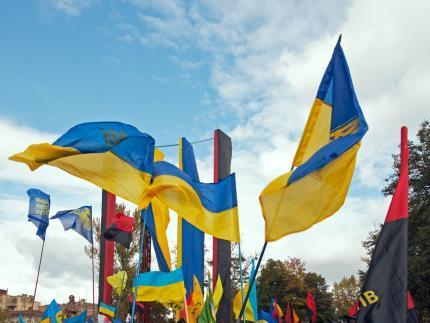
In contrast to fascism, nationalism is not best conceived of as a type of regime, political system, or state (on the same order as fascism, democracy, authoritarianism, dictatorship, oligarchy, totalitarianism, and the like) for two very simple conceptual reasons. First, a nationalist regime, political system, or state would have to be a set of political institutions that are fundamentally different from those that characterize fascism, democracy, authoritarianism, dictatorship, oligarchy, or totalitarianism. But there is no such distinctly different nationalist regime, political system, or state with its own distinct political institutions. Instead, every supposedly nationalist regime, political system, or state is always just a variant of fascism, democracy, authoritarianism, dictatorship, oligarchy, or totalitarianism.
Second and unsurprisingly, it is in fact the case that every type of regime, political system, or state contains some national characteristic—be it the claim that “the nation” is a monolith or the claim that “the nation” is the basis of popular sovereignty or the claim that “the nation” must be embedded in proletarian internationalism. One should resist the temptation to conclude that every type of national regime, political system, or state is therefore “nationalist,” inasmuch as to argue in this manner is to confuse “nationalist” with “national” and thereby to reduce “nationalism” to everything and everybody that somehow entails “the national,” thus producing a semantically bleached and utterly meaningless concept.
Now that we know what nationalism is not, what is it?
Nationalism, I suggest, is best conceived of as an ideology or as a movement, group, or organization with a nationalist ideology. Nationalism as an ideology is a set of core beliefs that sometimes justify and promote national liberation and the creation of nation-states in general and always justify and promote national liberation and the creation of a nation-state for some particular nation. Nationalism, in this sense, is always particularistic and only sometimes universal. Nationalism as a movement, group, or organization is a human collective that shares a nationalist ideology. A nationalist individual would obviously be someone who believes in such an ideology. Nationalism is thus “about” the creation of states, and not about how the political institutions of regimes, systems, and states should be structured.
Seen in this light, the popular term “hyper-nationalism” is meaningless. If nationalism is an ideology, then hyper-nationalism would have to be a hyper-ideology. If nationalism is a movement, group, or organization, then hyper-nationalism would have to be a hyper-movement, hyper-group, or hyper-organization. Needless to say, such conceptual obfuscation is not useful. What scholars really mean by hyper-nationalism is, quite simply, chauvinism. Appending the modifier “hyper” to the term “nationalism,” however, is a convenient sleight of hand that creates a putative connection between nationalism and chauvinism when none such connection need exist, whether conceptually or empirically. After all, the ideological or organizational promotion of national liberation and nation-states is fundamentally different from the hatred of or superciliousness toward other nations—which is what we presumably mean by chauvinism. To define fascism as hyper-nationalism only compounds the problem, reducing fascism either to some sort of incomprehensible hyper-ideology or hyper-collective or, worse, to nothing but chauvinism.
In contrast to fascism as an ideology or as a movement, group, or organization, nationalism as an ideology or nationalism as a movement, group, or organization with a nationalist ideology does not presuppose an existing state that should be transformed into one corresponding to nationalist ideals. As a result, nationalism cannot and does not presuppose an existing type of regime, political, system, or state. Quite the contrary, nationalism presupposes the non-existence of an independent state and therefore concludes that the existence, or creation, of such a state is imperative. Like fascism and fascists or communism and communists or democracy and democrats, nationalism and nationalists may aspire to create such a state legally, democratically, and constitutionally or they may aspire to do so illegally, undemocratically, and unconstitutionally.
The type of state that nationalism and nationalists aspire to create can be authoritarian, democratic, liberal, totalitarian, and so on. Unlike fascist states, which are invariably anti-democratic, the states to which nationalists aspire are not invariably anti-democratic. Unsurprisingly, nationalisms and nationalists have ranged across all political ideologies, including fascism, and individual nationalists and nationalist movements, groups, or organizations have always displayed a remarkable political flexibility, being able to change their political ideology whenever and wherever the circumstances so demand. This is not, as is mistakenly assumed, opportunism. Nationalisms and nationalists can be so chameleonic precisely because their ideology is fundamentally indifferent to the type of regime, political system, or state that emerges within the newly created state.
The key distinction among nationalisms and nationalists concerns not the goal (they all agree that national liberation and a nation-state is their goal), but the means. Whereas legally, democratically, and constitutionally inclined nationalists will employ legal, democratic, and constitutional means, illegally, undemocratically, and unconstitutionally inclined nationalists will employ illegal, undemocratic, and unconstitutional means. That is to say, they will break laws, be conspiratorial, disciplined, and hierarchical, and use violence. This is why sloppy scholars believe that nationalists “look like” fascists. But if the willingness to break laws, be conspiratorial, disciplined, and hierarchical, and use violence makes one a fascist, then every revolutionary movement (from that of the Americans in 1776 to that of the Israelis in 1947), every criminal organization (from the mafia to Mexican drug traffickers), every secret police (from the KGB to the CIA), and every assassin (from Brutus to Lee Harvey Oswald) is fascist—a claim that is almost as useless, and absurd, as the reduction of nationalism to “the national.” Clearly, “looking like” somebody or something is no basis for claiming that things “are like” somebody or something.
To summarize: Nationalism’s only precondition, both conceptually and empirically, is the non-existence of a state. Unlike fascists, nationalists build states de novo. Unsurprisingly, it is empirically the case that nationalism and nationalists are always found in stateless territories.
This post is the second in a series of three. The final part will appear next week.
June 9, 2013
On Nationalism and Fascism, Part 1
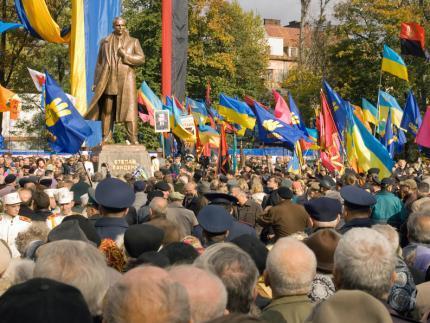
Ukrainian “nationalism” has been in the news these last few years. As usually happens with words that have seeped into our daily vocabulary, nationalism in general and Ukrainian nationalism in particular have come to mean just about anything. Its detractors, many of whom believe that Adolf Hitler’s National Socialism demonstrates that nationalism and fascism are inextricably connected, insist Ukrainian nationalism is a form of fascism. Its supporters, who often invoke Giuseppe Mazzini, say it’s noble and empowering.
Compounding the problem, many of the historians who study Ukraine show little interest in conceptual clarity. How we define things matters enormously, because definitions enable us to group similar things together and explain them systematically. The alternative, a habit of sloppy scholars, is a seat-of-the-pants approach that permits flawed comparisons. So please bear with me, as we go through some conceptual exercises.
Let’s start our enquiry by asking what fascism is not. Well, for starters, it’s not any of the things that casual users of the term appear to mean when they apply it to people they dislike. Intolerance may be a bad thing, but it is not fascism. Violence may be abhorrent, but it too isn’t fascism. Nor is conservatism, xenophobia, or racism. Richard Nixon may have been soft on all these features, but it would be absurd to suggest, as many on the left do, that he was a fascist. The term fascist is not and cannot and should not just be shorthand for stuff we don’t care for, if only because everybody soon becomes a fascist.
So how do we define fascism? Fascism, I suggest, is best conceived of as a type of regime, political system, or state on the same order as democracy, authoritarianism, dictatorship, oligarchy, totalitarianism, and the like. That is, fascism, like other types of regimes, political systems, or states, is fundamentally concerned with how regimes, political systems, or states are structured and organized. Fascism is thus “about” the political institutions of regimes, systems, and states.
Fascism may also be conceived of as an ideology or as a movement, group, or organization. Fascism as an ideology is a set of core beliefs that justify and promote fascism as a type of regime, political system, or state, while fascism as a movement, group, or organization is a human collective that shares a fascist ideology. A fascist individual would obviously be someone who believes in such an ideology.
Fascism as a type of regime, political system, or state; fascism as a set of beliefs about the correct organization of a regime, political system, or state; and fascism as a human collective with a fascist ideology all presuppose an existing state that should be transformed into one that corresponds to fascist ideals. Fascism and fascists aspire to change existing non-fascist regimes, political systems, or states into fascist regimes, political systems, or states. Fascism and fascists may aspire to do so legally, democratically, and constitutionally or they may aspire to do so illegally, undemocratically, and unconstitutionally, but their end goal is always anti-democratic.
The type of regime, political system, or state that fascism and fascists aspire to create is generally acknowledged to be a variant of authoritarianism or totalitarianism. Fascist regimes, political systems, or states are thus invariably anti-democratic, but, in contrast to run-of-the-mill authoritarian or totalitarian regimes, political systems, or states, fascist regimes, political systems, or states exalt “the leader.” In turn, fascist leaders in fascist regimes, political systems, or states are, or attempt to be, charismatic, and they usually view themselves as spokesmen for “the nation,” an entity that fascism treats as a monolith.
As the quintessential fascist, Benito Mussolini was the charismatic leader of a movement with a fascist ideology that proceeded to establish a fascist regime within an already existing Italian state. Adolf Hitler, if you consider Nazism to be an extreme variant of fascism, acted in the exact same manner as Mussolini, the only difference being that the former won power in an election while the latter seized it. Francisco Franco came to power by winning a civil war. Vladimir Putin, whose regime I’ve called quasi-fascist, came to power both legally and illegally. The way in which fascists seize power may therefore vary, but where they seize it (within an existing state) and what they then do (transform it into an authoritarian state with a charismatic leader) is pretty much constant.
To summarize: Fascism’s two preconditions are an already existing state and an already existing non-fascist type of regime, political system, or state. Fascists do not build states de novo; nor do they build types of regimes, political systems, or states de novo. Unsurprisingly, it is in fact the case that fascism and fascists are always found in already existing states with already existing non-fascist types of regimes, political systems, or states.
This post is the first in a series of three. The next part will appear next week.
May 30, 2013
Monuments, Ambiguity, and Double Standards
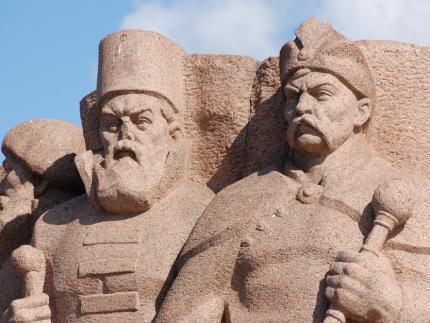
They’re smashing monuments in Ukraine again. In the eastern provinces, it’s Vladimir Lenin who’s under attack. In the western provinces, it’s usually Stepan Bandera, the leader of the interwar nationalist movement. Heads, fingers, and noses are being hacked away, tempers are flaring, activists are outraged. Meanwhile, Europeans and Americans are tut-tutting and wondering why those crazy Ukrainians don’t do things their way.
Which way would that be?
On a recent visit to Moscow, John Kerry let himself be photographed near Stalin’s bust. Indeed, the State Department released the photo with the following caption: “US Secretary of State John Kerry and Russian Chief of Protocol Yuriy Filatov, with US Ambassador to Russia Michael McFaul behind, walk past Joseph Stalin’s tomb in Red Square in Moscow, Russia, on May 7, 2013.” What’s more disturbing—that Russia still has a Stalin monument in Red Square or that the State Department doesn’t see the problem with photographing Kerry near it?
How about Hollywood? Quentin Tarantino’s Inglourious Basterds and Django Unchained are unalloyed glorifications of sadism, violence, and serial killing, performed in living color by good guys (us) against bad guys (them). I dare say most fascists and Nazis would have found Tarantino’s sentiments appealing. And yet, both films got decent to excellent reviews and were wildly popular with American and European audiences. Should Ukrainians emulate Quentin?
Or perhaps they should emulate Steven Spielberg’s Lincoln? Crotchety ol’ Abe, as ably played by Daniel Day-Lewis, lies, cheats, violates laws, ignores the Constitution, commits a slew of offences that, today, would guarantee him impeachment, and prolongs a war, thereby sending thousands of men to their deaths (while assigning his war-hungry son to a cushy job with General Grant), and, yet, the general consensus among publics and reviewers was that Spielberg’s Lincoln was a hero. Would they say the same about Viktor Yanukovych, who has also been known to have, er, liberal attitudes toward Ukraine’s laws and Constitution and who treats his offspring with no less solicitude?
The problem is that the people monuments immortalize are always far more ambiguous than the material physicality of the monuments suggests. Everybody, and especially heroes, has skeletons in closets. Everybody has dirty laundry. Everybody has a checkered past. Even saints. St. Paul was once Saul, the persecutor of Christians. St. Augustine was a dissolute young man. Countries, peoples, nations, states, and religions generally commemorate people for what they believe was the good they did. And, at the same time, they turn a blind eye to the bad things or dismiss them as irrelevant to the overall picture.
I once asked my Rutgers University undergraduate students if they could guess who made the following statements:
From what I have already seen of the workings of the Soviet government, I can only say that anybody who lifts his hand against it ought to be shot!
They have sung—sing now and will sing his praise—in song and story. Slava-slava-slava—Stalin, Glory to Stalin. Forever will his name be honored and beloved in all lands. In all spheres of modern life the influence of Stalin reaches wide and deep. From his last simply written but vastly discerning and comprehensive document, back through the years, his contributions to the science of our world society remain invaluable. One reverently speaks of Marx, Engels, Lenin and Stalin—the shapers of humanity's richest present and future. Yes, through his deep humanity, by his wise understanding, he leaves us a rich and monumental heritage. Most importantly—he has charted the direction of our present and future struggles. He has pointed the way to peace—to friendly co-existence—to the exchange of mutual scientific and cultural contributions—to the end of war and destruction. How consistently, how patiently, he labored for peace and ever increasing abundance, with what deep kindliness and wisdom. He leaves tens of millions all over the earth bowed in heart-aching grief.
They agreed it had to be some totalitarian monster. Imagine their surprise when I told them it was Paul Robeson, the Rutgers alumnus and renowned African American civil rights activist, who also happened to be a fervent Stalinist. He made the first comment in 1935, as Stalin was destroying his opponents, and the second in 1953, after Stalin’s death. Needless to say, if you view the campus display devoted to Robeson—in, naturally, Robeson Hall—these quotations are missing.
Back in 2007, Estonians decided to relocate a monument to the Red Army on the grounds that Stalin’s armed forces brought enslavement to their country for more than 40 years. And who could disagree?
A few years later, Israel decided to build a monument to the Red Army and its victory over the Nazis. As Prime Minister Benjamin Netanyahu put it, “About half a million of Jews fought in the Red Army, and many of them are still living in Israel. This memorial is also a tribute to their heroism and contribution to the victory.” And who could disagree?
Vienna’s monument to the Red Army is still standing, having been built by the Soviet occupation authorities in 1945. It dominates Schwarzenbergplatz, which until 1956 was known as Stalinplatz. Few Viennese regard the Red Army as a force of liberation; and many Austrian and German women remember the mass rapes that Soviet soldiers (among whom there must have been some Estonians and Jews) were encouraged to commit in 1945. Should the Austrians tear down the statue or leave it alone? Should they follow the example of those Bulgarians who painted the figures on their Red Army memorial in Sofia as comic-book superheroes? Should the Estonians have invoked or apologized for the mass rapes in Germany and Austria in arguing for their monument’s relocation? Should the Israelis have dismissed or apologized for them in deciding to build theirs?
The answer is that there are no easy one-size-fits-all answers. I’m inclined to suggest that all the monuments in Ukraine be left alone. If some East Ukrainian town wants to be associated with one of the 20th century’s greatest mass murderers, let it. If some West Ukrainian town wants to identify with a nationalist leader from the 1930s, let it. I think both could do better—and both will pay the price in terms of tourism, investment, and cultural, political, and social development—but then again I also think Vienna, Moscow, Tel Aviv, Hollywood, and my university could do better. Meanwhile, as Ukrainians try to sort things out, it may be best for European and North American moralists—and especially all of us with ethically challenged personal lives and well-paying jobs in the academic world—to stop their finger-pointing, smirking, and lecturing.
May 23, 2013
Yanukovych Could Divide and Destroy Ukraine
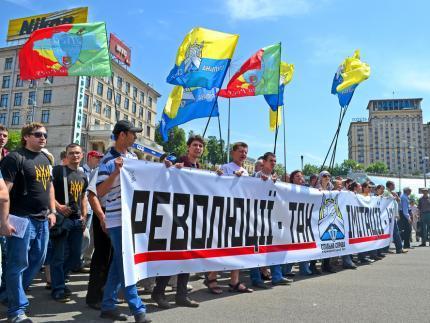
Start with the president’s overriding strategic interest: survival by reelection. Back in 2010, when he was elected, it was power and wealth. Now, after imprisoning opposition leaders, closing down the free press, and otherwise delegitimizing himself, Viktor Yanukovych wants only one thing: to be reelected in 2015. Not because he has plans for the country. But because he has plans for himself: he knows that the alternative to power is exile or, more likely, jail.
Continue with the fact that the only way Yanukovych can induce anybody to vote for him is by polarizing society. Conclude with the fact that, even if Ukrainian society is transformed into two hostile camps on the brink of civil war, there is still no way that a leader as bad as Yanukovych could ever get elected in a free and fair election. Fraud is therefore inevitable, and a violent crackdown in the aftermath of defeat or mass protest becomes the inevitable Plan B.
So there you have it. In order to stay in power, Yanukovych will almost certainly do the following: first, transform Ukraine into a country consisting of two irreconcilable parts, thereby guaranteeing that it is unstable and ungovernable. And, second, he’ll support one side against the other with coercion and, in effect, attempt to rule with martial law.
If that happens, Ukraine’s conversion into an authoritarian sultanate will be complete. Worse, since the country’s survival and integrity as a state will then depend entirely on Yanukovych and his dubious ruling abilities, it’s quite possible that the sultanate will collapse and that either Ukraine will descend into civil conflict or its eastern provinces will be annexed by a Russia fearful of spill-over and mass refugees.
After all, having polarized Ukraine in order to rule it by force, a president of Yanukovych’s questionable caliber will never be able to “un-polarize” it, at least not in the short run.
Ukraine’s tragedy consists in being misruled by an inept leader and thuggish party that will not relinquish power voluntarily. Western and Ukrainian analysts frequently concoct scenarios of how the opposition might win the elections and return to power. Those scenarios are well and good—and I’ve spun many of them myself—but their ultimate plausibility rests on one overriding factor: the willingness of Yanukovych and the Regionnaires to abdicate if they lose. Democracy can work only if power-holders who lose elections step down. If they don’t, or announce they won’t, elections become meaningless rituals, and democracy, along with all hope of democratic change, becomes a pipe dream.
At that point, when systems become clogged and refuse to countenance normal change, “extra-democratic” action becomes virtually inevitable. When regimes become thuggish, they generate thuggish responses: to put it another way, violence begets violence. Perhaps not immediately. If Yanukovych assumes dictatorial control over a divided society, the losers are likely to respond with confusion, apathy, and despair. Very quickly, however, some losers will decide they want to be winners. They’ll survey the regime and its forces of coercion and conclude that it’s led by an illegitimate leader with only tenuous support among a demoralized army and militia. Other losers will conclude that, having lost it all, they have nothing left to lose. Anomic violence will lead to organized violence and organized violence will destabilize the regime and, in all likelihood, the country itself.
I have no doubt that Yanukovych and the Regionnaires don’t care about Ukraine’s continued existence as a country several years from now. By then, they will have accumulated enough lucre to be able to live comfortably in Europe. Once le déluge begins, they’ll just board their private jets and abandon the country to its fate.
So how is such a dreadful outcome to be avoided? If one can no longer rely on Yanukovych and the Regionnaires to act in the country’s interests, then everything will depend on the population, the opposition, and the West. Ukrainians will have to resist Regionnaire calls to split into two warring factions and, instead, recognize that, if they don’t hang together, they’ll hang separately. The opposition will be able to promote consolidation if it presents itself as a serious democratic alternative with concrete proposals for improving people’s everyday lives. Europe can reduce the likelihood of violence by holding its nose and signing an Association Agreement with Yanukovych. Finally, both Europe and America can make sure Yanukovych leaves before the deluge by giving him a place to hang his hat. The West has provided refuge for dictators in the past. Why not for a sullied sultan in the future?
May 16, 2013
Ukraine’s Uninspired Opposition Preferable to Regionnaire Domination
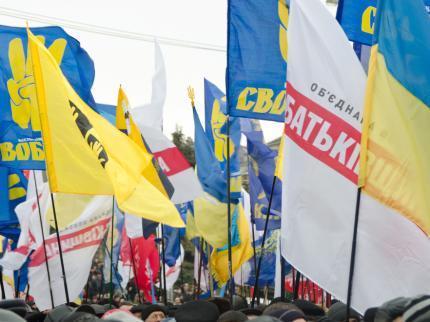
What ails Ukraine’s democratic opposition? Why do most Ukrainians, and especially those who detest the Yanukovych regime, continually gripe about the opposition’s fecklessness, weakness, and all-round lousiness?
I asked two friends in Ukraine for their views on the matter. One is a young journalist in Kyiv. The other is a middle-aged businessman in Lviv.
Here’s the journalist:
The opposition hasn’t thought anything through. Its statements are declarative and populist. It has no clear plan of action. Every party in the opposition has a somewhat different position and pursues its own interests. In a word, it’s the same as always: “where there are two Ukrainians, you’ll find three leaders.” It’s my impression that the primary goal of the opposition is to collect a few thousand people in front of some building. As to what should then be done, they have no idea. While people are protesting near the Parliament, taking off from work or studies, the oppositionists are lackadaisically walking about the parliament building. Obviously, the Regionnaires know how to take advantage of this.
When I asked just what he expected the opposition to do, the journalist replied:
In the first place, the opposition must set an example and demonstrate its willingness and determination to pursue political activity. It should engage in simple but symbolic actions that would motivate the people: every opposition deputy should take to the streets together with the people, stay with them until the protest ends (as they used to do during the Orange Revolution), propose effective means of controlling the behavior of the authorities, show that their political positions are coherent, demand mayoral elections in Kyiv, and propose a single, realistic opposition candidate for the position. Most important, there has to be some kind of coordination of opposition parties and of their resources.
Three points stand out in these comments. First, the opposition has to unite. Second, the opposition has to join the people. And third, the opposition must develop a clear, simple, and realistic program.
Here’s what the businessman said:
I have the impression that both the dictatorial power-holders and the opposition aren’t for real, that they’re putting on a show. Today they’re opposed to each other. Tomorrow they’ll be conniving again and will pretend that they’re in conflict. The Regionnaires and Communists just divided billions among themselves: the so-called opposition will accept their misdeeds, while causing a ruckus in order to get publicity.
People don’t believe them. Each of the three opposition leaders is playing a false role. The intellectual Yatseniuk is pretending to be a militant. The boxer Klitschko—an intellectual. The conniver Tyahnybok—the uncompromising fighter. But the most important thing may be the kleptomania of both the authorities and the opposition. These aren’t politicians in the classic sense of the word. Besides Svoboda, they’ve just changed places. Meanwhile, we know Svoboda’s poor record in the provinces. So we don’t believe any of them. As to whom we should believe, I don’t know.
In other words, the opposition has to be honest about what it is, what it wants, and how it behaves, when it’s in power and out of power.
Combine both sets of comments and you come up with the following profile for the opposition. It should be honest, self-sacrificing, practical, and united. Cynics might point out that those four characteristics are at odds with hundreds of years of political culture in Ukraine. Optimists might respond by saying that simple self-interest and survival would dictate that the opposition behave in just the way these two thoughtful gentlemen suggest.
Meanwhile, the young journalist-blogger Tatyana Chornovol pours ice water on all these hyper-intellectual ruminations:
I call on you to support the political opposition fanatically (and I’m not afraid to use that word) … Yanukovych must be removed in 2015. Otherwise, it’ll be too late. We must ensure the opposition candidate’s victory. Some people may not like Fatherland, Svoboda, and UDAR and their leaders. But nothing new will emerge anytime soon … That’s why we must support the existing opposition and inspire its struggle, and not destroy it with criticism … We’re all connected: they need our support, while we need them. To support the political opposition is to struggle for ourselves. To accuse the opposition of weakness is to acknowledge our own weakness. Only the support of civil society can make a political opposition strong, while the personal features of political leaders are secondary.
The moral of the story seems pretty clear: The best is the enemy of the good enough. If you agree, then democratically inclined Ukrainians have no choice but to support the democratic opposition, however “un-best” it is. In turn, the democratic opposition has to make itself worthy of “fanatical” support. When you consider the alternative—indefinite rule by Regionnaire thugs and Ukraine’s complete transformation into Zimbabwe—the good enough is a no-brainer.
May 9, 2013
Dictatorship By Referendum in Ukraine?
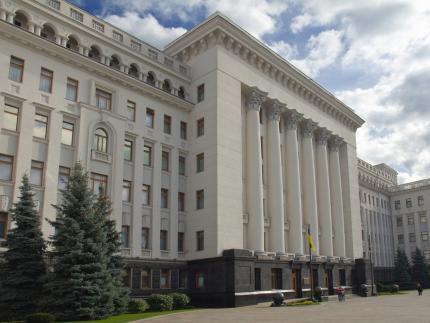
Ukraine’s democrats are worried that a law “On the All-Ukrainian Referendum,” signed by President Yanukovych on November 27, 2012, may serve to prolong Regionnaire rule by means of underhanded changes to the Constitution. The fear is not unfounded. After all, everyone knows that Yanukovych and the Regionnaires face certain defeat in the 2015 presidential elections. Crushing the opposition by means of selective arrests and violence only goes so far. Falsifying election results can work only within a relatively narrow margin of, say, 3 to 4 percentage points. Instituting a military dictatorship is out of the question in light of Ukraine’s crummy armed forces. Changing the Constitution in Parliament requires a two-thirds majority, which the Regionnaires don’t have and won’t have. So why not change the country’s basic law by means of a referendum, thereby enabling “the people”—whom the Regionnaires generally regard condescendingly—to forge their own chains?
At first glance, the idea is simple. The Regionnaires fashion a series of ambiguously worded changes to the Constitution and then put them up for a yes or no vote. In particular, they ask the people to approve the parliament’s transformation into a rump legislature elected only in majoritarian districts and the replacement of two rounds of voting for the president with one round. The masses vote yes. The Constitution is changed. The Regionnaires buy all the seats they want and Yanukovych rules forever. As democratic activist Iryna Bekeshkina, the head of the Democratic Initiatives NGO, puts it: “This will be the end of democracy in Ukraine, inasmuch as the very law on referenda is formulated in such a fashion that only the authorities may conduct, control, and count the votes.”
Bekeshkina has a point, but any referendum concocted by the Regionnaires to prolong their rule could become a two-edged sword. True, the people could turn out to be as slavish as the Regionnaires hope they are, but, then again, they just might not. After all, everyone would know that a referendum would be a ploy by Yanukovych and his pals to ensconce themselves in power indefinitely. And Yanukovych, as everyone knows, is deeply unpopular, while the Regionnaire base in the Donbas is progressively eroding. Moreover, the economy is a mess and will remain so for many months to come. It’s not at all clear that the people will opt for self-enslavement.
Nor is it clear that the democrats and an outraged populace couldn’t do well in the majoritarian districts. The Regionnaires think that everybody is a venal crook. They’re wrong and, like venal crooks in other parts of the world, they could easily discover that honesty, even in Ukraine, might be a pretty popular policy. And, however much they try to rig the presidential ballot, don’t bet on Yanukovych’s winning in a first round. Facing Armageddon, the democrats just might agree on a single candidate; it’s also possible that the incumbent could lose even if he runs against several.
But imagine that Ukrainians do opt for self-enslavement—by a tiny majority. The result will be a slap in the face to the other half of Ukraine’s population, growing radicalization and polarization, and, not inconceivably, violence. Imagine that the referendum fails by a small number of votes. The Regionnaires could falsify the results, but the outrage will likely be even greater. The only way a referendum would have the desired result is if it passes with a clear majority of, say, 60 percent to 40 percent. But if Yanukovych’s popularity and credibility were that high, there’d be no need for a referendum in the first place.
Now imagine that the referendum doesn’t pass. Yanukovych’s illegitimacy will have been confirmed and he will have to choose between accepting the results (and, thus, defeat in 2015) or implementing some form of martial law. The latter is impossible. The former is unacceptable. In a word, a referendum is a high-stakes game, one that Yanukovych would be well advised to play with great caution.
Things get more complicated if you look at the fine print of the law. A referendum can be initiated by the Rada, Ukraine’s Parliament, or by the people. Neither course promises an easy process for the ruling Regionnaires. If they want to push a referendum empowering themselves and Yanukovych through the Rada, they’ll have to buy out the 32 Communist deputies, who would be consigned to oblivion in any new redaction of the Constitution. That’ll mean paying them about $5 million apiece, a total of about $160 million, which is lunch money by Regionnaire standards. The Stalinists may sell out willingly and then retire to their proletarian palaces in the Crimea, but their hard-core constituents, who probably number about 10 percent of the Ukrainian population, may not take kindly to this double betrayal. Will they support motions that legalize their irrelevance? Or will they vote against? Who knows?
And then there’s the pesky people and their ability to initiate a referendum. As Point 6 of Article 15 states: “An All-Ukrainian Referendum is declared as a result of a popular initiative if there is a demand for it by no fewer than three million citizens of Ukraine, who have the right to vote, and on condition that the signatures regarding a referendum are collected in no less than two thirds of the provinces and no fewer than one hundred thousand signatures in every province.”
Point 6 makes it possible for the democratic opposition to play the referendum game as well. The democrats could easily collect 3 million signatures in two-thirds of Ukraine’s provinces and, with a little bit of effort, they could probably collect a hundred thousand in all the provinces. Whether or not the democrats will avail themselves of this weapon is unclear. But the weapon exists and, if used cleverly by a united opposition, could actually hasten the Regionnaires’ disappearance from Ukrainian politics.
So, will the Regionnaires go the referendum route? Probably. But, since they’re too short-sighted to understand that opening a Pandora’s Box could unleash forces leading to their downfall, that just might turn out to be good news.
May 2, 2013
Spy vs. Spy in Ukraine and Russia
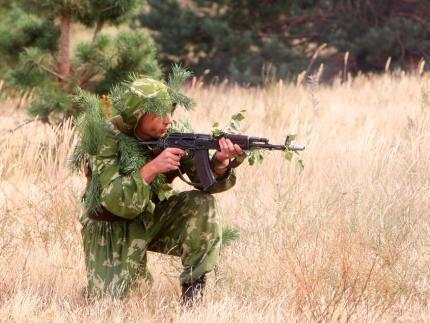
The spies have been in the news these last few months. On February 14th, Russia’s president, Vladimir Putin, spoke at an expanded board meeting of the Federal Security Service (FSB). Then, on March 25th, Ukraine’s president, Viktor Yanukovych, addressed the Security Service of Ukraine (SBU) on the 21st anniversary of its founding. Putin’s website ran his entire speech; Yanukovych’s—only a brief excerpt.
Putin made three key points:
The priority of terrorism: “The most important aspect of your work is forestalling and preventing terrorism. It is necessary to protect people, and young people in particular, from being drawn into terrorist groups and the criminal underground. The direct link between extremist and terrorist groups is clear.”
The impermissibility of outside interference in Russia’s internal affairs: “no one holds a monopoly that gives them the right to speak on behalf of all Russian society, especially the entities managed and financed from abroad as they inevitably serve others’ interests. … Any direct or indirect interference in our internal affairs, any form of pressure on our country or on our allies and partners, is unacceptable.”
The permissibility of FSB interference in its neighbors’ internal affairs: “Recently we have heard a number of, to be perfectly honest, nervous, angry statements regarding integration processes within post-Soviet space. … Close integration is an objective, global process which cannot be stopped—including on our territories—by shouting and criticizing. Nevertheless we can expect—and as you know we are indeed faced with—various attempts to impede our integration efforts by employing a number of instruments of pressure, including the so-called mechanisms of soft power. I want to emphasize that Russia’s sovereign right and that of our partners to build and develop our integration projects must be duly protected. I would ask you to work closely with your colleagues and partners from Belarus, Kazakhstan, and other countries involved in various integration processes in this respect.”
That Putin sees no contradiction between his second and third points and between his view that integration is both “objective” and in need of presumably subjective “integration projects” and “efforts” is doubtless due to his many years’ practice in dialectical reasoning as a KGB agent.
Yanukovych, in contrast, spoke in generalities, almost as if he had no idea of what a security service is supposed to do—or that, at least, is the impression the official press release creates. Here’s Yanukovych on the SBU:
The organs of law and order, and in the first place the Security Service of Ukraine, must be a reliable shield that defends our national interests against any interference under conditions of the complex challenges of the contemporary world. Ukraine must be strong, modern, and efficient, inasmuch as only then will it be able to defend its national interests. The Security Service is the key link in the sector of security and defense and it bears this important task. Our joint responsibility is to ensure order, maintain civic peace, and continue with the effective reform of all the country’s spheres of vital activity.
Who could disagree? I’d like to think Yanukovych said a bit more to Ukraine’s spies, especially about the FSB’s mandate to promote “integration processes” among Russia’s neighbors, but it is not, alas, inconceivable that he’s oblivious, or perhaps even welcoming, of Putin’s intentions.
Fortunately, the same day as Yanukovych greeted the SBU, its press service provided more detail on the SBU’s activities. Besides fighting drug trafficking, corruption, and terrorism, the SBU is engaged in counterintelligence:
In the last year alone in Ukraine a stop was put to the espionage of 8 foreign spies and over 20 agents of foreign secret services, who were attempting to acquire illegally information about promising developments and technologies used above all in the military-industrial complex, the space sector, and the aviation industry. A court sentenced three citizens of the Asian-Pacific region to 5 to 8 years’ imprisonment for attempting to acquire illegally secret documents.
Since Russian capital already has a strong presence in, and arguably knows everything about, Ukraine’s military-industrial complex, space sector, and aviation industry, the eight spies and 20 agents are probably from the “Asian-Pacific region,” and not from Russia. The current SBU head’s background also suggests he may be disinclined to view the FSB’s integrationist efforts with alarm. Appointed to this office on January 9, 2013, Major General Oleksandr Yakymenko was born in Estonia, served in the Soviet Armed Forces from 1982 to 1991, and spent most of the last 20 years in security-related positions in the Crimea and Donetsk Province. In other words, he may be infected with Regionnaires’ Disease. The man he succeeded, Igor Kalinin, was an out-and-out Russian KGB agent of many years’ standing.
That said, there may be a smidgeon of potentially good news here. The SBU’s press service does speak of the “need to reform the SBU within the framework of the new Strategy of National Security of Ukraine and above all with regard to intensifying the counterintelligence and analytical sectors of the Ukrainian security service’s activity.” The convoluted sentence structure suggests that the SBU is in need of more than just good analytical skills, but the bit about counterintelligence may be grounds for hope that Yakymenko’s service in the front lines of Putin’s “integration processes” may have actually sensitized him to their destabilizing impact on Ukraine.
April 25, 2013
Can a National Salvation Front Rescue Ukraine?
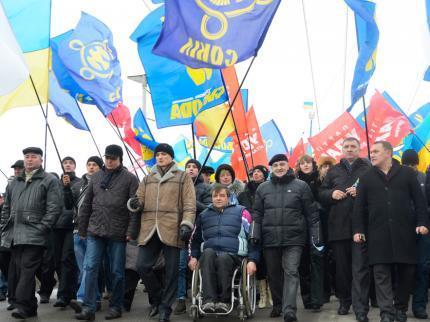
I recently spoke with Sam Patten, an international political consultant, about the run-up to Ukraine’s presidential election in 2015. Patten worked as a media consultant for former President Viktor Yushchenko’s Our Ukraine party in 2007. He also helped opposition parties in Georgia defeat the government of President Mikheil Saakashvili in 2012. Patten has also managed Eurasia programs for Freedom House and served as the Moscow-based country director for the International Republican Institute.
MOTYL: As many, including myself, have observed, things seem to be getting worse and worse on the Ukrainian political landscape. How do you see it today?
PATTEN: More than halfway through his first elected term as president, Viktor Yanukovych has little to brag about. Earlier this year, Goldman Sachs contradicted the government’s growth predictions and forecast that the economy will contract by nearly 2 percent in 2013. Pseudo-legal appropriations of businesses and property have also hit new highs. And the European Union is not bluffing, as the Ukrainian government believes, when it comes to the conditions for an accession agreement. Perhaps the best thing Yanukovych and his cohorts have going for them are the low expectations most Ukrainians have of their political leaders. According to a report by the civil rights watchdog Chesno, nearly three-fourths of Ukrainian politicians have betrayed or will betray the country’s interests. In public opinion surveys, Ukrainian politicians are nearly tied with prostitutes when it comes to trustworthiness. Only a hat-trick can save Yanukovych—who in his youth was convicted of stealing a hat—if the 2015 elections are anything close to free and fair. That’s why now is the critical moment for Ukraine’s opposition to present a strong and compelling alternative.
MOTYL: What should the opposition forces do to defeat the current government?
PATTEN: From the outside, it looks as though the leaders of the three principal parties that make up the opposition bloc in the Rada are walking in step with one another—certainly they have done so literally at recent rallies, and they have cooperated to stand up to Yanukovych’s Party of Regions in the Rada. Should they be able to form something akin to a national salvation front in the coming year, it would give Yanukovych’s government real cause for concern. The elements of a winning team are all there:
Vitaly Klitschko stands as a civilized prizefighter, in bold contrast to brawling deputies in the Rada. His UDAR party produced the best news in last October’s parliamentary election, garnering nearly 13 percent of the vote. The tactically brilliant Arsenii Yatseniuk is no stranger to high office, having been speaker of the Rada and foreign minister, yet his stewardship of the Fatherland party during Yulia Tymoshenko’s imprisonment saw net losses in seats last October, even if it remains the largest of the opposition forces. And the nationalist Svoboda party’s Oleh Tyahnybok tapped a vein of voter anger against the skyrocketing corruption in today’s government, yet there remains unease about how extreme they will become.
Were Yanukovych to play Ukrainian politics in the same way the Kremlin played puppet-master in Russia back when there was a need to keep up appearances, he could conceive of many ways to pit these opposition forces against one another. Indeed, he may well be trying to do just that. This is precisely why today’s opposition leaders in Ukraine must work harder than ever before to put aside dueling egos, shelve wedge issues—like Svoboda’s new tilt toward a Ukrainian-only language law—and construct a new kind of leadership with different rules before electoral cynicism colors everything they do as 2015 approaches.
MOTYL: Is it enough for opposition forces simply to wait for Yanukovych and the Azarov government to drive the country so far into the ground that their electoral defeat becomes the only way of saving the country, or is there a better plan?
PATTEN: First, it is time to move beyond process in the national discussion of politics. Continuing to point out the falsifications in the October 2012 elections may be a worthy cause, but will not mobilize the nation. Instead, it’s high time to get down into the weeds on such topics as health care and education, which poll highly as concerns and to which the parties all tip their hats in elections, but for which there has been no meaningful reform. These are issues that actually impact people’s lives, and charting a path to improvement in both areas could open voters’ minds to the possibility that politicians care as much about them as they do about themselves.
Second, it is time to start thinking about justice not only in the breach, but also what it could look like were it a working notion in Ukraine. During a recent visit to Washington, Klitschko asked lawmakers to consider sanctions against corrupt officials in Ukraine, akin to a law Congress recently passed regarding corrupt officials in Russia. The law may have merit, but ultimately neither the US nor Europe will provide all the answers when it comes to holding criminals in Ukraine accountable. When the last president failed to go after the murderers of Georgi Gongadze or even his own attackers, it is unsurprising that people could turn a blind eye to the criminal past of the current president. With the unjust imprisonment of Tymoshenko creating a powerful and dramatic backdrop, now is the time to say in understandable language how to bring independent, and non-political, courts to the country.
Finally, there needs to be a pre-agreed mechanism for selecting the challenger to Yanukovych. Belarusian opposition parties did this admirably in 2006, but the playing field they faced was so lopsided that even a common candidate couldn’t unseat Aleksandr Lukashenko. But Ukraine in 2013 is not Belarus in 2006—not yet, anyhow, even if it is getting a little closer with each passing day. It will take time and practice for Ukrainian politicians to overcome their itch to stab one another in the back. Poetic though the question of “who will be the last to betray Ukraine” may be, it is time to start strategizing about what still can be done about the grand betrayal that is forcing the Ukrainian state off a cliff. Less than a month after the death of one of the major funders of the Orange Revolution, Boris Berezovsky, it is too late to pray for history to repeat itself. For Ukraine, it is time to try something new.
Alexander J. Motyl's Blog
- Alexander J. Motyl's profile
- 21 followers



